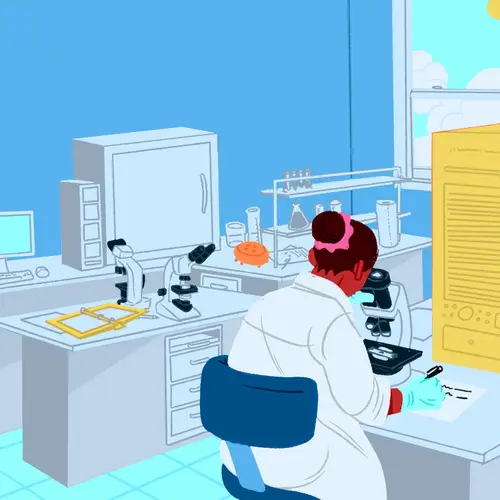About 1 out of every 110 babies is born with a heart defect. Many can be spotted well before birth and fixed in the first weeks or months of life. But if a defect isn't fixed before age 2, it can cause a rare but serious circulation problem called Eisenmenger syndrome.
The symptoms can take many years to show up, but once it develops, very little can be done about it.
Symptoms
The most obvious sign is bluish skin. Fingers and toes may be rounded or club-like, and you'll also likely notice fatigue and shortness of breath, especially with exercise.
Sometimes infants and small children show symptoms that are caused by the heart problem. These include:
Other symptoms can show up as the disease affects different parts of the body. If you have it, you may have:
- Belly pain
- Chest pain
- Fainting
- Headaches
- Heart palpitations
- Swelling in your legs and ankles
- Weight gain
Why It Happens
Eisenmenger syndrome is a kind of high blood pressure in the lungs, called pulmonary arterial hypertension. It's caused by a heart defect that lets blood from opposite sides of your heart mix together. Usually, this happens when there's a hole between the two lower chambers of your heart, called the ventricles, or a hole between the upper chambers, called the atria.
The right side of your heart pumps blood a short distance to your lungs, where it picks up oxygen. The left side sends blood out to the rest of your body, so it pumps much harder. When there's an opening between the two sides, the stronger left side forces blood into the right side. That sends too much blood into your lungs.
Over time, the blood vessels of your lungs are damaged. They get stiff and thick, and the pressure inside them rises. Eventually, pressure also rises in the right side of your heart. That forces blood from the right side into the left, so blood that hasn't made it to the lungs yet is mixed with the oxygen-rich blood being pumped out to your body. Organs and tissues don't get enough oxygen, and that causes serious problems.
This damage happens slowly, and symptoms can take many years to show up. The process starts before a child turns 2, and by the teenage years, blood starts to flow the opposite way through the hole in the heart and oxygen levels drop. Health problems start in the teens and 20s.
Diagnosis
Your doctor may notice a problem when they listen to your heart. They'll look for signs of a heart defect and low levels of oxygen in your blood. They'll put a sensor on your finger or earlobe to measure how much oxygen is in your blood.
They may also take a sample of your blood to see if you have more red blood cells than normal. They're the part of your blood that carries oxygen. When your body doesn't get enough oxygen, it makes extra red blood cells.
Your doctor can confirm that you have Eisenmenger syndrome with an echocardiogram, which can show if there are holes between the chambers. They might also suggest an electrocardiogram (EKG), which checks for problems with the electrical activity of your heart.
Related Conditions
As the disease progresses, the lack of oxygen affects organs and tissues throughout your body. That can put you at greater risk for:
- Anemia
- Arrhythmia (irregular heartbeat)
- Gallstones
- Gout
- Heart failure
- Infection of your heart, lung, skin, or brain
- Kidney disease
- Problems with bleeding and blood clotting
- Stroke
Treatment
Once blood vessels in your lungs are damaged, heart surgery alone can't fix the problem. Some people can have a lung transplant. Others get a transplant of both heart and lungs.
But surgery is very risky, and it can be hard to find donor organs. If surgery isn't an option, your doctor will treat your symptoms and try to prevent other health issues. Certain drugs can bring down the blood pressure in your lungs and limit or delay damage to your heart and blood vessels.
Other medications can help with specific symptoms, like iron supplements for anemia or diuretics to help with swelling. Oxygen may make you feel better.
What You Can Do
The choices you make are important in managing Eisenmenger syndrome. For example, pregnancy is extremely dangerous for women who have it. It can lead to the death of the mother or the child.
Here are some things you can do to stay healthy:
- Never smoke or drink alcohol.
- Don't overdo it with exercise. Don't play competitive sports. Never scuba dive.
- Avoid salt, which can raise your blood pressure.
- Drink plenty of water.
- Don't use drugs that put stress on your kidneys unless your doctor says to. That includes anti-inflammatory pain relievers. Aspirin is also dangerous because of the risk of bleeding.
- Avoid high altitudes.
- Get a flu shot and pneumonia vaccine.
- Take good care of your teeth, gums, and skin, and take antibiotics before dental visits. Germs that get in your bloodstream can damage your heart.

